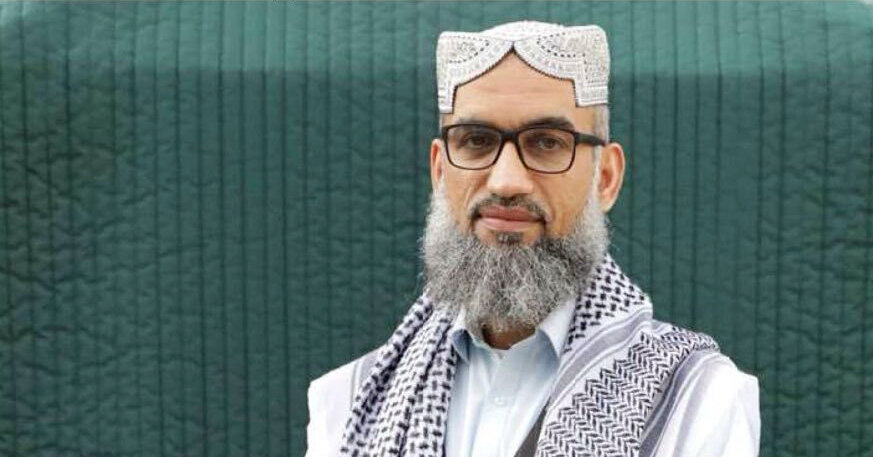A military judge on Friday threw out the confession that a man accused of conspiring in the Sept. 11 attacks made to federal agents in 2007 at Guantánamo Bay, ruling the statements were the product of a campaign of torture and isolation carried out by the C.I.A.
The ruling by Col. Matthew N. McCall was the latest setback to prosecutors in their long-running quest to bring the death-penalty case to trial, despite the years the five defendants had spent in secret C.I.A. prisons.
Ammar al-Baluchi, 47, was so thoroughly psychologically conditioned through abuse and threats during his time at the agency’s overseas prisons, or black sites, from 2003 to 2006 that he involuntarily incriminated himself in 2007, the judge wrote in a 111-page decision.
Mr. Baluchi, who is charged in the case by the name Ali Abdul Aziz Ali, is accused of sending money and providing other support to some of the hijackers who carried out the attack that killed nearly 3,000 people on Sept. 11, 2001.
He is the nephew of Khalid Shaikh Mohammed, the man accused of masterminding the attack. Mr. Mohammed and two other defendants in the case reached plea agreements with prosecutors that are now being contested in federal court. A fifth defendant was found mentally unfit to stand trial, a condition his lawyer blames on his torture at the hands of the C.I.A.
Testimony derived from C.I.A. documents showed that Mr. Baluchi was routinely kept naked and beaten during his first days of agency custody in a program of “enhanced interrogation,” which was designed by two psychologists on contract to the C.I.A.
Student interrogators took turns slamming his head against a wall. He was deprived of sleep for 82 straight hours by shackling him at the ankles and wrists in a way that forced him to stand, naked, with a hood on his head. He was made to fear he would be drowned in a mock waterboarding technique in which he was laid out on a tarp as cold water was poured onto a towel covering his face.
By the time he reached Guantánamo, he had undergone 1,100 rounds of interrogation in C.I.A. custody, some with agency debriefers asking questions provided by the F.BI.
“Just as the C.I.A. psychologists had planned, Mr. Ali learned that he was helpless to resist the torture, and that cooperation meant a lessening of abuse and an increase in rewards,” Colonel McCall wrote.
“The goal of the program was to condition him through torture and other inhumane and coercive methods to become compliant during any government questioning,” the judge also wrote. “The program worked.”
The decision was not released in its entirety, pending a review for classified information. But lawyers with access to the document provided unclassified passages.
The question of whether the interrogations could be used at trial has been a central focus of the case for seven years, taking up thousands of pages of pretrial pleadings and dozens of days of witness testimony.
Prosecutors had argued that by the time of his interrogations in January 2007, his fourth month at Guantánamo Bay, Mr. Baluchi was no longer fearful of his captors and willingly participated in three days of questioning. The judge noted that argument might have been more sound had the agents read to him from a traditional script of his right to not incriminate himself. But they did not.
Alka Pradhan, a human rights counsel for Mr. Baluchi, welcomed the ruling, saying it recognized “the brutal torture he suffered at American hands.”
“It is also a reminder to the United States that governments that commit crimes must be held accountable,” Ms. Pradhan continued. “The American people, constitutional values, and the rule of law have all paid a heavy price over two decades of impunity for the torture program.”
No recordings or transcripts were made of Mr. Baluchi’s Guantánamo interrogations. Instead the agents described his answers and demeanor in a 45-page memo, which the judge ruled Friday would be inadmissible at trial.
Rear Adm. Aaron C. Rugh, the chief prosecutor for Guantánamo cases, said on Saturday that his office was reviewing the ruling and “will make a decision on whether to appeal in the near future.”
The special Guantánamo court was intended to grapple with the impact of earlier, violent C.I.A. interrogations. But Colonel McCall, who is soon to retire from the Air Force, became the second military judge to suppress the confessions of a capital defendant as involuntary.
In 2023, an Army judge, Col. Lanny J. Acosta Jr., threw out the confessions of the Saudi defendant who is charged with bombing the Navy destroyer Cole — Guantánamo’s longest-running capital case. He ruled that “any resistance the accused might have been inclined to put up when asked to incriminate himself was intentionally and literally beaten out of him years before.”
Prosecutors subsequently appealed that decision, and lost. The defendant in that case, Abd al-Rahim al-Nashiri, is slated to go to trial on Oct. 6, 25 years after the Qaeda bombing that killed 17 sailors aboard the ship off Aden, Yemen.
https://www.nytimes.com/2025/04/11/us/politics/sept-11-confession-torture.html


